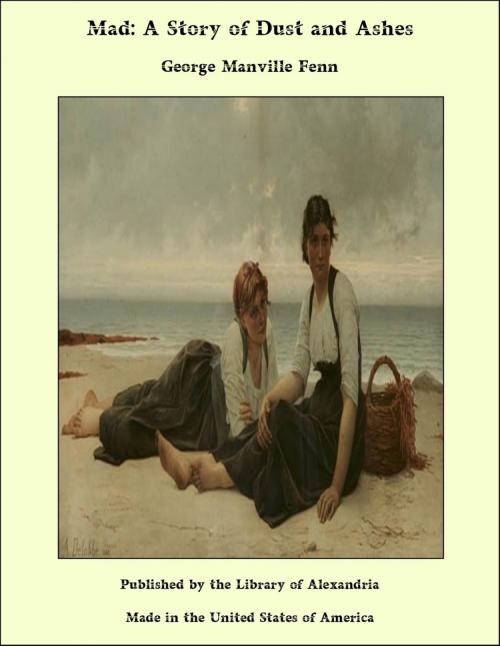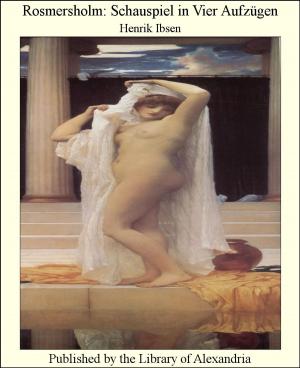Mad: A Story of Dust and Ashes
Nonfiction, Religion & Spirituality, New Age, History, Fiction & Literature| Author: | George Manville Fenn | ISBN: | 9781465620675 |
| Publisher: | Library of Alexandria | Publication: | March 8, 2015 |
| Imprint: | Language: | English |
| Author: | George Manville Fenn |
| ISBN: | 9781465620675 |
| Publisher: | Library of Alexandria |
| Publication: | March 8, 2015 |
| Imprint: | |
| Language: | English |
Septimus Hardon bore his Christian name from no numerical reason, for he was an only child; but his father, Octavius Hardon, Esquire, of Somesham, thought that, like his own, the name had a good bold sound with it—a sonorous classical twang. There was a vibration with it that should impress people in the future life of the bearer and add importance denied by Nature; but Mrs Octavius, during her lifetime, was always in disgrace with her lord for shortening the name into Sep, which was decidedly not impressive; while as for Septimus himself, he too was always in trouble with his father for being what he was—decidedly impressive, but not in the way his father wished; for to look at Septimus Hardon it might have been supposed that Nature, after trying her ’prentice hand on man, and then making “the lasses, O,” had had a quantity of rough stuff left—odds and ends, snips and scraps and awkward tags—when, sooner than there should be any waste of the precious material, she made Septimus Hardon. You could not say that he was deformed, but there was an odd look about him; his head seemed too big, and was badly thatched, while, by contrast, his body was too small; then his nose was a trifle on one side, and his mouth too wide, though it certainly disclosed an enviable set of teeth; his arms were long, and swung about too much, while one leg was slightly shorter than the other, short enough to make him limp; but there was mildness written in his pitted face, and honesty peered at you from his clear bright eyes. And there was a true heart too in his breast, a large swelling heart, to which must have been due the obtrusiveness of his breast, and the decided roundness of his shoulders. And while Septimus Hardon had in some things most excellent taste—taste that his cousins sneered at, save when they wanted their music copied neatly, or their drawings touched up—yet dress was not his forte, since he always made the worst of himself by wearing clothes that did not fit him, and bad as his figure was, some tailor could have been found who would have guaranteed fit, if not style. Septimus generally wore shabby faded black coats and vests, trousers of a dead leaf or baker’s drab, blucher boots of the pattern known as contract—very bulgy and wrinkly; and a real beaver hat, with a propensity for growing irritated under the brush, and becoming rough and startling.
Septimus Hardon bore his Christian name from no numerical reason, for he was an only child; but his father, Octavius Hardon, Esquire, of Somesham, thought that, like his own, the name had a good bold sound with it—a sonorous classical twang. There was a vibration with it that should impress people in the future life of the bearer and add importance denied by Nature; but Mrs Octavius, during her lifetime, was always in disgrace with her lord for shortening the name into Sep, which was decidedly not impressive; while as for Septimus himself, he too was always in trouble with his father for being what he was—decidedly impressive, but not in the way his father wished; for to look at Septimus Hardon it might have been supposed that Nature, after trying her ’prentice hand on man, and then making “the lasses, O,” had had a quantity of rough stuff left—odds and ends, snips and scraps and awkward tags—when, sooner than there should be any waste of the precious material, she made Septimus Hardon. You could not say that he was deformed, but there was an odd look about him; his head seemed too big, and was badly thatched, while, by contrast, his body was too small; then his nose was a trifle on one side, and his mouth too wide, though it certainly disclosed an enviable set of teeth; his arms were long, and swung about too much, while one leg was slightly shorter than the other, short enough to make him limp; but there was mildness written in his pitted face, and honesty peered at you from his clear bright eyes. And there was a true heart too in his breast, a large swelling heart, to which must have been due the obtrusiveness of his breast, and the decided roundness of his shoulders. And while Septimus Hardon had in some things most excellent taste—taste that his cousins sneered at, save when they wanted their music copied neatly, or their drawings touched up—yet dress was not his forte, since he always made the worst of himself by wearing clothes that did not fit him, and bad as his figure was, some tailor could have been found who would have guaranteed fit, if not style. Septimus generally wore shabby faded black coats and vests, trousers of a dead leaf or baker’s drab, blucher boots of the pattern known as contract—very bulgy and wrinkly; and a real beaver hat, with a propensity for growing irritated under the brush, and becoming rough and startling.















